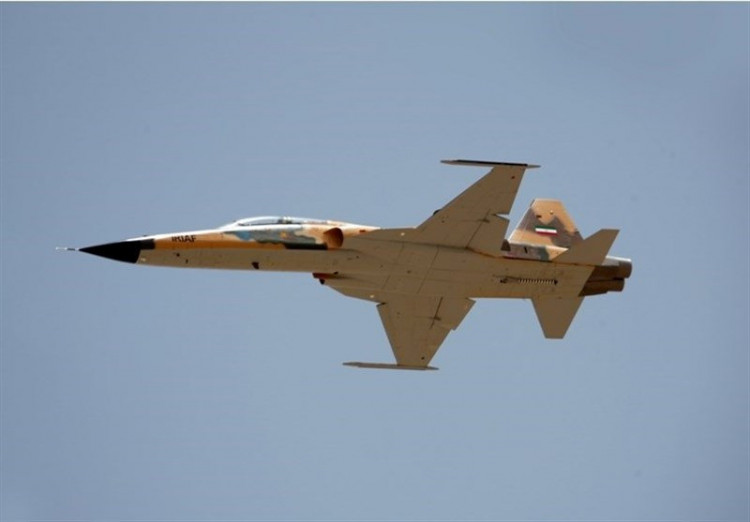In its efforts to bolster its military might, Iran has recently unveiled a new domestically-made fighter jet this week at a Tehran ceremony, the state-run Press TV report confirmed.
According to CNN, the Islamic Republic of Iran Air Force conducted test flights of the jet, named the "Kowsar" on Tuesday, ahead of Iran's National Day of Defense Industry celebration this week.
The jet, which is classified as a fourth-generation fighter, has the reported capacity to carry various weapons and can be used for short aerial support missions. As stated by the media, the Kowsar's design and manufacturing were done solely by Iranian military experts.
As the state media further specifies, the Kowsar boasts a handful of cutting-edge military technology such as an "advanced avionics" system on board and multi-purpose radar.
Iranian head of state Hassan Rouhani was among the government officials who graced the unveiling event. News outlets show video and pictures of the president sitting in the cockpit of an aircraft.
In his statement, the Iranian leader said that the Kowsar is an addition to its weapons arsenal which in turn further boosts the country's military presence in the region and in all over the world. This also helps keep its enemies at bay.
Moreover, Rouhani said that Iran's determination to create its own aircraft is a clear statement of the country's "readiness to defend."
Defense, according to the president, is a means to "seek lasting peace" rather than to let war happen.
"If we lack readiness, we welcome war," Rouhani said, and as quoted over by Aljazeera.
For Iran's Defense Minister Amir Hatami, the Iran-Iraq war in the 1980s served as a lesson that in times like this, the country can only but rely on itself to protect and fight for its sovereignty.
The Kowsar, as Hatami added, is a testament to the country's commitment to establishing and maintaining its security despite having limited resources.
More than ever, Iran is faced with economic threats with the re-imposition of the US sanctions, following Trump's decision to back out from the 2015 nuclear weapons deal.
The Joint Comprehensive Plan of Action (JCPA), which was signed by the Gulf state along with the UN and the US, delimits Iran's nuclear activity in the region. In exchange, Iran would be able to trade freely in the global market.
However, in May, Trump received intelligence reports hinting at Iran's violation of the agreement. This prompted the US president to withdraw from the pact and replaced the sanctions.
Iran's Supreme Leader Ayatollah Ali Khamenei made it clear that the Islamic Republic has no intention of entering into war with the Western powerhouse.






